Caroline Leavitt's Blog, page 96
February 28, 2013
Susan Salluce talks about Out of Breath, grief, writing, and so much more
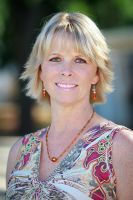
[image error]
I wish I were a stranger to grief, but alas, like many people, I'm not. But what helps and heals? Sometimes it's story. Susan Salluce is a grief therapist who has written a wonderful novel that explores mourning, and I'm honored to host her here. Thank you, Susan!
What inspired you to write Out of Breath?As a full time therapist who specialized in grief, I had severalclients wrestle with reading traditional grief books—they were often clinical, too removed, or even the title was so upsetting that they wouldn’t open the book.
I’d recommend novels that had elements of grief in them—books that touched my soul and whispered something special.
It was about four years into my specialty that I started showing signs of burn out—or what professionals call Compassion Fatigue—wishing clients would cancel, an inability to separate work form home, carrying my clients problems around in my head, somatic problems (insomnia, increased headaches), difficulty concentrating, and so forth. I started practicing at twenty-two, and I was turning forty: what else could I do? This was my passion, my role, my gift, my career.One day during a consultation meeting with a group of therapists, we focused on our personal growth rather than our cases. One of my colleagues posed the question: “What would you attempt to do if you knew you could not fail.” Like a Freudian slip, I exclaimed, “I’d write a book!”Everyone looked at me with surprise—this was news. I’d never shared that writing was my first passion, a secret desire whose flames I’d learned to simmer because I swam with self-doubt. What if I could write a grief story to share with others?
My supervisor saw the flame in my eyes and advised me to take a month off to fan that flame. At the end of my one-month break, all I had to do was walk into her office—she knew I was resigning. I took two months to do closure/reassignment with my cases, and nine months later I completed my first draft of Out of Breath.
What’s your writing life like, your process?
My writing life is passionate, stream-of-consciousness, emotional, and very therapeutic. I lack discipline at times, but try to write every day, even if it’s my blog, poetry, or polishing my new manuscript. When I wrote Out of Breath, I even dreamt scenes, waking up to write details down on a pad next to the bed. This is what is happening with my new book, Dancing My Father Home, a fictional memoir about my life with my father.I don’t use an outline, but I have a general sense of what is going to happen. Like any artist, though, I think the joy is the creative process. Often I will be writing and it is as though the character is writing his or her own story and my fingers are simply obeying. At the end of a scene, I often sit back and think, “Wow, I didn’t see that coming!”
So much in the book is about grief. What have you learned in your work as a grief therapist that found its way into your story?
That’s a wonderful question. Lots! First, that parents who have tremendous loss are resilient. For the past several years, I’ve volunteered with Friends for Survival, a group dedicated to those who’ve survived a suicidal death. It feels as though that first year will destroy you—that the grief is insurmountable! I think this is what I wanted to show in Out of Breath, and why the novel covers a calendar year.
I also learned that people are prone to make impulsive, dangerous, and life-altering decisions when they are bereft, which can have dire consequences. We are not ourselves when we grieve, and I believe we ought to have a piece of paper that we hand people from time-to-time that says, “Hi, I’m ____. I just lost my ____, and so sometimes I will be doing some crazy %#$@.” It’s true! This doesn’t mean we get to behave recklessly and not be accountable for our behavior; quite the contrary. However, I constantly advice people to not make life-changing decisions during those first six months, possibly a year, after a death, because life is so upside down and it’s tempting to shake up one’s world to cope with the emotional hurricane of loss.
What’s obsessing you and why:
My latest project, a fictional memoir, Dancing My Father Home, has me riveted to my office chair. My father died just two days short of his 83rd birthday this past year. I was working on another writing project, and it was just falling flat…no emotional connection happening for me. I had always encouraged my clients to journal about their grief, so I took my own advice, and my journal turned into a manuscript.
Dancing My Father Homeis not just my story, though. It’s a novel that will help others who grew up in a chaotic home environment. I had a complex love relationship with my father: daddy the nurturer who snuggled with me, read me bedtime stories, played catch in the street, and tucked me in for bed, versus my dad the violent abuser of my mother who couldn’t hold a job, and would disappear for days at a time, leaving me with an emotionally vacant mother, both of us wondering when he would return. It’s an emotional project to write, therefore, I’m taking it slow, and giving myself the liberty to fictionalize it when it gets too close to home.
Thank you so much for this opportunity to share what is on my heart. I love my new career path as an author. What brings me the most joy is hearing that someone who is grieving has been touched by my work and feels less alone in their grief. Blessings!
Published on February 28, 2013 10:05
February 25, 2013
Jim Gavin talks about Middle Men, writing in binges, how bad jobs teach you not to take yourself too seriously, and so much more
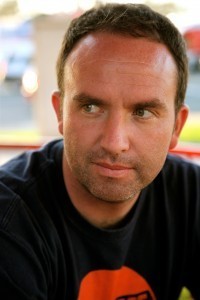
Jim Gavin’s short stories about men and mayhem and the dark side of California dreaming are knockouts. His fiction has appeared in The New Yorker, The Paris Review, Zoetrope, Esquire, Slice, The Mississippi Review, and ZYZZYVA. He lives in Los Angeles and I'm thrilled and jazzed to have him here on my blog. Thanks so much, Jim.
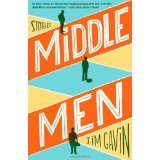
Tell me about the title and how it works thematically in the book?
In the title story, the father and son plumbing salesmen are “middle men,” in the literal business sense, as they work for a manufacturer’s rep, brokering toilets sales between factories and wholesalers. But hang on, because things get even more exciting! In all the stories, the characters are middle men in that they find themselves caught somewhere between their dreams and the often disappointing realities they find themselves in. This middle holds both the promise of a brighter future, and the terrible sense of dread that it will all go wrong. It always goes wrong. The younger protagonists are naïve and wrongheaded and they fail in a million different ways, but if nothing else they care about the world and want to be a part of it. Dante’s Purgatory is serene but cast in shadow, and the souls stay there until they then learn something about themselves. To bend a John Cheever quote to my purposes, all the protagonists receive an education in economics and love.
What's your daily writing life like? Do you have rituals you use?
I’ve never had a set schedule and I tend to write in binges. Avoiding going online first thing in the morning is always a good thing to do, and during the last decade I’ve managed to do that at least three or four times. I got a lot of work done on those days. I don’t know – some days I fall into intense self-loathing, feeling like I’ve wasted every second of my life; other days I feel happy to indulge all the things I like to distract myself with, knowing that those distractions are somehow the key to whatever I’m writing. Usually, the best motivator is just reading something great, a sentence or line of poetry that gets you excited to sit down and play with words.
I have to ask about all the jobs you yourself have had--from plumbing salesman to gas station manager and more. What does working such jobs do to you? What does it get you to learn?
The most important thing is that it teaches you not to take yourself too seriously. Once at the gas station, while I stood by the old analog pumps, staring into the street and thinking of nothing at all, a dude who was filling up his truck looked at me with a mixture of horror and pity and said, “Jesus, man. Is this your life?” I laughed, but it sort of rang in my ears later when I was mopping up the men’s room for the millionth time. It occurred to me that maybe I should be doing something more with my life. But I’ve never really had the Faustian urge to dominate man and nature. I worked at the station for almost five years and, sadly, I loved it. All the guys on staff were local kids I grew up with, and the main part of our job was sitting around all day, telling stories. When I got my plumbing job I was excited to make tons of money, but I was a terrible salesman. To make a worthwhile sale you have to ask someone to do something, and I hate asking for things more than anything. I only lasted a couple years. There were good moments – I helped set up some Delta faucet displays at a couple wholesalers in Victorville, but you probably already read about that triumph in the summer 2006 issue of the Supply House Times. I won’t expand on it here. The company I worked for had a lot of great people. A certain kind of deadpan humor presides over the plumbing industry. Every year we had a Christmas party at our warehouse in Gardena and my boss would give out awards. One of the categories was the “Perez of the Year Award,” given to one of the ten Perezes who worked for us. I never won any awards, but I’m glad I got a chance to work there.
What's obsessing you now and why?
Lionel Messi. Watching his Barcelona team play every weekend is one of the purest joys in life. I’m totally insufferable to be around when I watch him play. I gasp and moan and writhe in a truly unsavory fashion. Lionel, light of my life, fire of my loins. My sin, my soul. Li-O-Nel. Votive candles must be lit daily for Messi’s continued health, because without his grace and magic the world will sink into darkness. Xavi and Iniesta are pretty good too.
Also, the twitter feed of @dadboner, which follows the deeply American adventures of Karl Welzein, of Grand Blanc, Michigan. Dark, sad, hilarious, depraved, and even a little soulful, it is the standard by which all other twitter narratives will be judged.
What question didn't I ask that I should have?
What have I been reading? I’m glad you asked. I just read The Adults by Alison Espach. It’s brutally funny and unsentimental but always humane, and on just about every page there’s a sentence or two that makes your jaw drop. Espach subverts every coming of age trope and continually takes the story to surprising places. Great stuff.
I also loved The Might Have Been by Joe Schuster, an incredibly wise and haunting novel about baseball and the American dream. I’ve read a lot of sports novels over the years, but this one is just on another level. The story follows Edward Everett Yates, who after playing ten years in the minor leagues, finally gets his shot at the big leagues. It all goes horribly wrong, and Yates ends up coaching for many years in the minor leagues, cobbling together an itinerant life on the beat down edges of small town America. I was mesmerized by how effortlessly Schuster moves through time. He gives us the entire life of a man, and it’s unforgettable.
Published on February 25, 2013 15:35
Howard Kaylan storms the White House: read an excerpt of the forthcoming book, Shell Shocked: My Life with the Turtles, Flo & Eddie, and Frank Zappa, Etc. co-written by Howard Kaylan and my husband, Jeff Tamarkin
Happy Together. She'd Rather Be With Me. Those are just two of the hits from the Turtles, a 1960s folk rock band that was known for its mayhem and mischief. Howard Kaylan, the group's frontman, partied wildly with just about everyone, from Jimi Hendrix (Kaylan threw up on Jimi's velvet suit) to Bob Dylan, and his memoir, co-written by my husband, Jeff Tamarkin, is coming out April 16th.
And a part of the book, about Howard's adventures during Tricia Nixon's coming-out party at the White house has just been excerpted in ROLLING STONE.
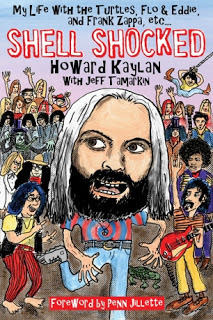
Published on February 25, 2013 08:37
The sublime Julianna Baggott talks about Fuse, trilogies, dreaming about storyworld and so much more
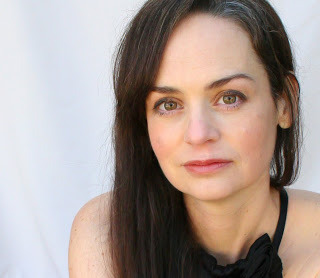
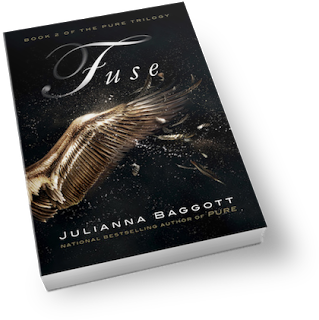
Julianna Baggott is flat-out wonderful. Funny, smart, generous and warm, she's also one of the most creative and adventurous writers I know. She's published an astonishing 19 books in a dozen years. Pure, the first book in her trilogy, was a New York Times Notable Book of the Year and an ALA Alex Award-winner, and if that's not enough, the film rights have been acquired by Fox 2000. Fuse, the second book in the series, is just as haunting, terrifying, and brilliant as Pure.
Her first novel, Girl Talk, was a national bestseller, followed by The Miss America Family and the Boston Herald Book Club selection, The Madam. She co-wrote, Which Brings Me To You with Steve Almond, which was a Best Book of 2006 from Kirkus Reviews. Bridge Asher novels include The Provence Cur for the Brokenhearted, My Husband's Sweethearts, and The Pretend Wife. Her Young Adult novels, under the pen name N. E. Bode, include The Anybodies Triology, which was in development at Nickelodeon/Paramount, and her Boston Red Sox novel, The Price of Fenway park won the Massachusetts Children's Book Award for 2011-2012.
An associate professor at Florida State University's College of Motion Picture, she also, along with her spouse, founded the no-profit organization Kids in Need-Books in Deed, that gets free books to underprivileged kids in Florida. Her essays have graced the pages of The New York Times Book Review, Modern Love, The Washington Post, read on NPR'S Here and Now and All Things Considered, and more.
What's it like to write a trilogy? Did you know it was going to be a three-parter when you began, or did the story just grow and demand that form? And do you have any thoughts about what might come next when you're finished with the trilogy?
A trilogy is really an enlargement of the three-act structure, in some ways. In Book I PURE, a lot of attention is given to the building of this ash-choked world -- the world itself is a character -- and the characters are taking shape. With multiple perspectives, PURE is a collision course, bringing all those lives together. In Book II, FUSE, with much of the world in place and the characters starting to be known, I had the opportunity to upend expectations, expand the worlds (the twisted psychological terror inside the Dome and the brutal landscape on the outside), and really let loose in terms of action. As in a three-act structure, the middle act and the middle book are the longest. In Book III, BURN, I get to push the characters to their own personal extremes, to the real breakdown of their coping mechanisms, and to find them at their most raw and vulnerable. The advantage to a trilogy is to dig in and go deep, to have that grand architecture to keep it all supported, aloft.
I didn't know what I was writing at first, but by the end of PURE, I know I was at work on something much, much bigger and the second and third books were taking shape.
I'm going to write a few stand alone stories -- definitely for El Capitan and possibly Iralene (who first appears in FUSE). As for other books, they're in the works... always.
The storyworld you've created in Fuse is so visual, so bristling with life, and so disturbing, do you ever have trouble releasing yourself from the world when you've finished with your writing day? And can you talk a bit about what went into creating such a vivid world?
In writing PURE, I dreamed about the world. There was no leaving it. And it didn't help that I did research on the bombings of Hiroshima and Nagasaki late at night. I don't like to separate work from life much. The blur helps me.
Over the years, I've learned to write while not writing. It's the result of having four kids and not being able to trust a strict schedule. As a result, I see the world in my head, visually; I hold it there and edit scenes there-- in my head -- and the result is a more efficient process, I think, and a more visual page.
Fuse has so many important things to say about the way we live now vs. the way we should live--and I think part of its power is that it's set in a futuristic world. It reminds me of something I recently read in Anne Sterlings wonderful book, As I Knew Him, about her life with her father. Rod Serling began writing science fiction because it was the one way he could get his most powerful and disturbing ideas across in a way that most people could accept and handle. Can you talk about this?
I never start with ideas. I start with people in situations. But by the end of any of my books, I realize that they're political in ways I never expected. And whenever you're writing post-apocalyptically, you're asked to explain what brought on the apocalypse. For me, the answer is human beings, and then politics emerge without feeling like I'm pushing ideas, but simply trying to explain how we would create our own demise. My politics emerge and I prefer that to be organic. When it's not, it's obvious and the sky falls in on the world.
You work in a variety of genres, which I really admire. Is it hard to switch from one to another? And what makes you gravitate to each?
It's a release valve to switch. When I can't write another cinder of ash, not another mote, I can glide into an essay -- and write about things that have been pulling on me in the real world. Or if emotional about something, I often turn to poetry. I like being able to work trans genre, and I especially like finding a subject matter and asking which genre would best suit it ...
I also want to ask you about writing under pen names. What made you decide to do this and how does it feel--do you sense a different personality with each name?
Just recently, I've come to see the pen names as promises that I've made to the reader. Bridget Asher wants to talk about contemporary women, real lives, the demands of love and marriage and loss... N.E. Bode is certainly a voice. Very much so. Sometimes I'll be writing a formal letter to someone and find I'm being Bode and I have to start over completely. Bode makes a promise to young readers -- about the mysterious world all around them and a complete and utter lack of condescension. Baggott might write anything at all. You never can tell. So it seems some promises should exist. We've just redone the web site, hoping to show my brain in a handy-dandy graphic -- how all of the books and genres break down. www.juliannabaggott.com. I hope it works.
And the questions I always ask:What's obsessing you now and why?Paths not taken.
What question didn't I ask that I should have?
About my career as a choreographer (a path not taken).
Thank you, thank you! I hope one day we can actually get to meet so I can hug you in person!
Julianna Baggott
The Book Trailer for PURE
www.juliannabaggott.com
The Shared Brain of Baggott, Asher & Bode Blog
www.pure-book.com
Published on February 25, 2013 08:31
February 23, 2013
Meg Pokrass interviews Nate Tower about eating baby carrots, juggling, writing and so much more
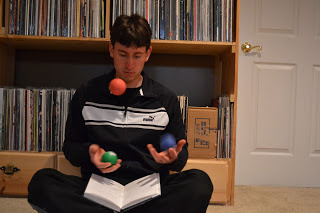
With thanks to Meg Pokrass for this great interview! And thanks to Nathaniel for such hilariously wonderful answers!
Nathaniel Tower is a writer, teacher, runner, coach and juggler. He is the founding editor of the literary magazine Bartleby Snopes. His short fiction has been published in over 200 online and print journals and has been nominated for numerous awards. In 2011, MuseItUp Publishing released his first novel, A Reason to Kill . Several months later, his first novella, Hallways and Handguns, followed. A collection of short fiction tentatively titled Nagging Wives and Foolish Husbands is set to be released through Martian Lit during 2013. In November 2012, Nathaniel set a world record by running a mile backwards while juggling in 8 minutes and 22 seconds. The record has been confirmed by The Book of Alternative Records. For more of his crazy antics, visit http://www.nathanieltower.wordpress.comnathaniel tower interview.docx
2. How does juggling affect your world view?Juggling makes me realize that the world really just wants to be happy. All the problems in the world could just be solved if everyone was happy. Not too long ago, a creepy guy followed me for a mile in his car. I thought he was going to kill me. He looked like the killing type. Turned out he just thought it was cool that I was juggling while running (see my response to the first question about how juggling makes you cool). If I hadn't been juggling, he might've killed me. I know that most people are good at heart. They just need something to make them smile. Without juggling, I would think the world was an evil place filled with bad people.
3. What age were you when you began writing? My first poem was published at age nine. It was in one of those scam books that publishes every submission they get because they know parents will buy tons of copies. My teacher at the time thought my poem about leaves falling was brilliant. It was. Totally existential. Let me share a couplet:When the wind does not blow
No further will they go.You know, most people thought my parents wrote that for me. They didn't. My dad's a chemical engineer. You think he could come up with something that deep? Well, given my success and the legions of fans, I sort of became a recluse and didn't write much of anything again until college. Well, I wrote some things on some ancient word processing program, mostly stuff about warlocks and the like. But those documents were all burned because I couldn't handle the stardom. So I wrote some profanity-laced poems in college, because I was so filled with angst! Then, something happened and my angst went away, so I shelved all those poems and wrote poems that expressed my deep world view. Then I realized I knew nothing about the world and shelved those poems. I took some years off and decided that I wasn't a poet. I was a fiction writer, born to write profound things about people with hands made of oats or people emerging from the womb with magical bayonets. But I'm not a one-trick pony. I wrote a story about beautiful other-worldly vampires that soared to the top at Fictionaut. I'm expecting to get some calls from some of the big publishing houses soon. I hear Penguin is interested in a collection of my six-minute stories. I've only written one so far, but I can write others. It only takes about six minutes to do one. I think I can pump out ten in an hour. Heck, if they called me right now, I could have the collection finished before the end of the business day. Anyway, my serious writing career began in 2008. But I've always written.
4. What did it feel like to be placed in the Guinness Book of World Records for juggling and running backwards. How has it changed your life? Actually, Guinness is pretentious and rarely accepts new record categories, so I am only in the Alternative Book of Records, which I think is even better. There's a direct link on their website to my video. And they sent me a certificate. Honestly, I didn't feel any different until I received the certificate. That piece of paper, printed in color on cardstock, made me realize that I can do anything. I'm waiting to get my endorsement checks for millions. I haven't heard back from Nike, Asics, Under Armour, or any other company yet. I think it's because they are all engaged in some crazy bidding war over me.
5. I understand you may combine juggling with writing in some way. What are you looking to do here? My God, what are the rest of us to think?Glad you asked. I actually recorded my first juggling/writing performance this weekend. It was inspired by Robert Vaughan's interview on Bud Smith's radio show. I wrote a story in response to his prompt, "I moved into a basement apartment," and then I recorded myself juggling while reading/improving the story. My video equipment kind of sucks, but I went all out on the performance. I even recorded the video in the basement. It really fits. I have some other ideas up my sleeve, although I think juggling to the content/rhythm of the story is the best idea I've had so far in terms of being the world's first wruggler (someone who writes while juggling).
6. Tell us about this freaky new feature on your wonderful blog, the one called Cold Reads. So I sit in an icebox and read a story until I turn blue.Actually, that's not what it is. I invite an author to send me his or her craziest/funniest story, and I record an audio version of it. I get one take, and don't read the story ahead of time at all. I've had a lot of positive feedback so far. The lineup has been great. Bud Smith, CS DeWildt, Meg Tuite, Len Kuntz, Stephen V Ramey, and many more. I think I have ten episodes worth of approved authors so far, with a few more in the works. The submission process is interesting, since I don't read the stories ahead of time. If I do record a story and hate it, I just won't put up that episode. If I record a story and fuck up a lot, then I'll still publish the episode. I think it's become this thing where people want to challenge me, want to see if they can get me to bust out laughing or stumble over words. I have a few words that I'm just bad at pronouncing, so if you sneak any of those in, it'll be an interesting experience for everyone. Honestly, I'm really bad at reading ridiculous scenes of violence. I often find them funny to read. Not the really gory shit. Just the dark humor type of violence. Like in American Psycho, when Patrick Bateman kills Paul Allen with an axe to the face. Now that's funny. I'd crack up reading that scene.
7. Talk about vocal nervousness and insecurity. Were you taunted as a child? At the mercy of sadistic mute nuns? Everyone's taunted as a child, right? The nuns didn't do much to me. I don't remember any ruler smackings. Just forced menial labor. I think the nuns were rendered powerless shortly before I entered the school system. But I wish I had stories about nuns hitting me. There's nothing more bad ass than getting beaten up by someone who has dedicated her life to spreading the good work of Jesus. When I was eight or seven or nine or something like that, I "won" some stupid drawing and had to read the weather forecast on the radio station. Great prize. Then, at school a few days later, at an all-school assembly, they played the tape of my forecast. So I'm just sitting there, trying to be cool, when this hissing and crackling tape of my pre-pubescent wounded chipmunk voice comes on and talks about clouds and shit. It was a lot to get over. While we're on the topic, I'll confess something huge. I had a speech impediment until I was ten or twelve. I couldn't pronounce my 'R's. I couldn't pwo-nounce them, that is. Seriously. But I can now, after all my speech therapy. I could be a damn pirate if I wanted to be. That's inspirational. That's why I wanted to make sure there was an 'R' in the title of my podcast. To prove all those naysayers wrong. They all said I'd never make it big as a podcaster. Well, look at me now!
8. What is it like to read very embarrassing parts of stories? Well, I guess it's embarrassing. Well, it's not actually embarrassing to read it. But I suppose if my wife came downstairs while I was recording a line about a crooked spotted cock in my face, then I might be embarrassed. But she knows better than to listen when I'm reading. She's a good wife.
9. Do you juggle many things in life? Do you run backwards?I only run backwards while juggling. Otherwise, I try only to move forward. Why back away from what's ahead? I want to try running while juggling scissors. Forward of course. Sometimes, I'm afraid I do too much. I can only juggle four balls at a time. Working on five. But in life, I am teaching, coaching, raising a kid, being a husband, writing, editing/managing Bartleby Snopes, blogging, podcasting, juggling, etc. It gets hectic, and sometimes I feel I can't do everything I want to do. There's never enough time, is there? I've adapted to this 6 hours of sleep schedule. I just read an article that says you can't adapt to less sleep, that you want be as productive. The people who did that study need to come look at my schedule.
10. What is the main personal goal you have, at this time. What do you hope to accomplish in the next year?I assume you mean other than juggling scissors while running. I feel like I need to better find my place in life. I want to make a career out of writing/publishing/editing/literature/something like that. I know we all do. And I know what a risk it is to try. But I want to try. In the next year, I want to finish the novel I've been working on, The Funeral Attendee. It's about a guy who gets paid to attend funerals. It's this big underground thing, in the book anyway. Funeral homes are paying people to attend funerals to make them look more populated in order to make it seem like the funerals are successful. I think it's better than it sounds. I'm terrible at writing book blurbs. Maybe a goal is to write better book blurbs.
11. What are you obsessed with?Eating baby carrots. I have to eat at least thirty a day. Mainly, I'm obsessed with doing too many things. Of course I'm obsessed with writing, but that's boring. My other main obsession is music. Discovering new artists. Collecting more music than I could ever listen to in a decade. I look for new albums to listen to every day. I collect vinyl records. I can't resist colored vinyl. Want me to buy something? Release it on speckled red/blac vinyl. I will buy it, probably without ever listening to it beforehand. I'm not a superfan of any TV shows or movies or books. I don't hole up in the basement playing dress up or anything weird like that.
Published on February 23, 2013 10:05
February 20, 2013
Bronwen Hruska talks about Accelerated, ADHD, medicating our kids, and unspoken agreements between parents and schools
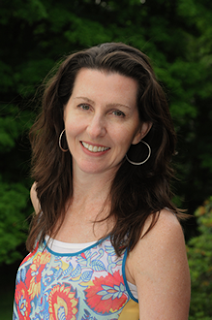
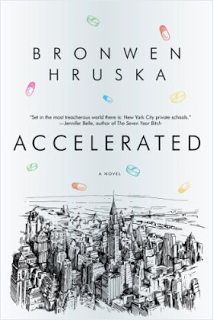
What's normal with our kids and what isn't? Are we giving out too many ADHD labels when none are warranted? Does medication help? I loved Bronwen Hruska's novel Accelerated because she sees all the shades of gray in those questions, and she presents them in a gripping drama. Before becoming publisher of Soho Press, Bronwen Hruska worked as a journalist and screenwriter for twenty years. Her articles have appeared in the New York Times, The Los Angeles Times, More Magazine, Entertainment Weekly,Cosmopolitan, the Village Voice, and the San Francisco Chronicle, among others. I'm thrilled to have her here. Thank you so, so much, Bronwen.
What sparked the idea for this novel? When my son was in third grade, his school suggested we get him evaluated for ADHD because he was having trouble lining up quietly to “transition” between classes. He forgot his spelling notebook occasionally and sitting quietly for 45 minutes to do worksheets was challenging. But he never struck me as an ADD kid. He was funny, sociable, smart and not particularly antsy. But at the time I was willing to cede my gut to the school and later to the psychiatrist who diagnosed him with Inattentive-type ADHD. His teacher was blunt. “A little medication could really turn everything around for him,” she said. It was the beginning of a long and frustrating episode with his school. I started writing the book to vent some of those frustrations. When I started it I had no idea how many other parents all over the country, were dealing with the exact same thing.
As someone who lives in the NYC area, I see this kind of pressure all the time. Why do you think this is and what can we do about this?
We live in an accelerated society where everything has to be better, faster, more impressive. New York is the epicenter of that kind of thinking, and it trickles down quickly to children. If kids aren’t reading two grade levels up in third grade or able to sit still to absorb the rigorous curriculum required by top schools, there is a lot of concern. And that concern I’ve realized, can lead to medicating kids—whether they need it or not. There are a vast number of children being diagnosed with Inattentive-type ADHD, a diagnosis that relies heavily on short questionnaires that are filled out by teachers and rate things like “squirminess” on a scale of one to five. It was explained to me this way: A child with Inattentive-type ADHD is fine in most situations, but in “distracting situations,” like school, they can’t focus as well as kids who don’t have it. I’m not trying to vilify schools or parents or doctors. In fact, I believe medicating kids is done in the spirit of trying to help them succeed. As parents we want the best for our children, and we tend to look to the experts, which in this case is the teacher. Schools want to help kids be good students, to feel a sense of pride in their work. But somewhere along the way, we’ve gone off the rails. ADHD medication can seriously help kids (and adults) who suffer from Attention Deficit, but kids who are very much within the normal range of development are being medicated to enhance performance in school. To my mind, there’s a strong comparison to be made with juicing in professional athletics—using performance-enhancing drugs to get an edge. And for the record, it’s not just happening in Manhattan or private schools. It’s happening all over the country.The first thing we can do as parents is talk to each other. Medicating kids is still a taboo subject, especially for a parent whose gut is telling them that their child isn’t really ADHD. Those are exactly the parents who should be sharing their experiences. We feel alone—we’re made by the schools to feel that way—but when 5.2 million kids have been diagnosed with ADHD, alone is the last thing we are.
What kind of research did you do for this novel and did anything surprise you? If you’re going to write a fictional account of a real epidemic, it better be factually airtight. So I interviewed doctors, parents, teachers. I interviewed adults who had been diagnosed. I studied the history of Ritalin and the rise in diagnoses over the past fifty years. I did some research on pharmaceutical companies and the staggering amount of money at stake where ADHD medication is concerned. But some of the most shocking facts came from the Center for Disease Control that reported that boys were being diagnosed 2.8 times more frequently than girls. It reminded me of an article I’d read that said that boys were being treated as “defective girls.” As the mother of two sons, that really struck a chord. I realized that if that statistic were true, then we need to determine what the barometer for normal is and figure out who’s setting it. In The War Against Boys, Christina Hoff Sommers looks at how the education system was overhauled in the wake of Carol Gilligan’s work to accommodate the specific learning styles of girls. As a result it seems that boys were left in the dirt. I think that schools do value traits now that are more traditionally female, and leave little room for the very normal (and different) developmental style of boys.
Sean is just this wonderful complex dad struggling to do what's best, while trying not to be overwhelmed by the pressures of Manhattan. What went into creating his character? Thank you! It was really important to me that Sean be flawed and confused and feeling very outside the estrogen-heavy circle of moms at drop-off and pickup at his son’s private school. While Sean and I are quite different, he does embody so much of what I was struggling with when my son got the diagnosis. Like so many parents in that position, Sean has to make the huge decision about whether or not to medicate his eight year old, while getting heavy pressure from the school to give it a try. That was the baseline for me, and from there Sean and I had no problem together. In fact, inhabiting his skin was more fun than I should even admit. I became quite fond of Sean, and in seeing the world through his eyes, I think I became a tiny bit more compassionate towards men and the seemingly strange choices they tend to make. I'm curious about the response you might have had from wealthy New Yorkers, particularly the ones who feel that getting into the right pre-school can set your child on a path to success while getting into the wrong school can doom your child. A lot of parents have felt the need to justify their choice to medicate, but I’m not judging anyone! My hope is that people read the book and, well, first just enjoy it as a novel. But then I hope they think about what it means to medicate a child, what the risks and benefits are. What are the drivers for putting your child on medication? Every parent has to weigh the risks against the benefits for their own kids, obviously. The best feedback I’ve gotten is from parents who’ve been through the exact same thing and can finally feel justified for freaking out a little about it—there have been a lot of emails like that. The problem is that I don’t think people consider ADHD medication like Ritalin or Adderall to be that risky. I know when my doctor wrote my son’s prescription for Ritalin, she said there were decades of proof showing it was safe. It wasn’t until later, when I learned about the various levels of side effects which range from lack of appetite, sleeplessness and agitation to anxiety, depression, hallucinating, irregular heartbeat and sudden death, that I had to take a minute to think about what “safe” meant. But I agree with you that there’s an unspoken agreement between parents and schools to do what it takes to get that child ready for what lies ahead. That, unfortunately, results in the conceit that a child should be perfect, or strive for perfection in everything, which leads to a lot of pressure and unrealistic expectations. Hand in hand with that is a deep fear that if you haven’t done everything you can to create a perfect child you haven’t done your job as a parent, that you’ve ruined your kid’s chance of a decent education, a happy life. Sometimes you’ve just got to step back and put it all in perspective. Because right now we are creating a generation of drugged kids who are slowly becoming a nation of drugged adults. Why wouldn’t kids reach for a pill to deal with stressful situations in life? It’s exactly what we’ve taught them to do. What's obsessing you now and why? Despite what the book might lead you to believe, I don’t have an obsessive personality! I’m just trying to figure out how to run a company, be a (halfway decent) mother and get a little writing done on the side. What question didn't I ask? Where can you buy the book?! And the answer is everywhere—in hardcover, ebook and even audio. (Sales pitch complete.)
Published on February 20, 2013 14:19
An important idea from Graywolf Press
We're conducting a new experiment at Graywolf. We're hoping to raise $25,000 to help us launch our new website next month using an online crowd-sourcing campaign through Indiegogo:
Fifty percent of Graywolf’s income comes from donations. In this campaign, we're reaching out to some of our friends to whom we normally do not go for fundraising purposes. We feel this is an ideal opportunity to ask you to consider making a small donation ($10.00, $25.00, or more) AND/OR to help us spread the word through your online networks. This will help us not only to continue in our mission, but will also send a powerful message to donors that we have a strong national base of support.
So, if you have ever enjoyed a Graywolf book, or have had positive interactions with our staff, or simply believe that Graywolf is a good thing, then do please visit the website and click the appropriate button. The site is open until midnight Thursday, so we're in the final stretch. For any of you who to choose to give, there are chapbooks, mugs, and lots of books on offer.
Thank you!All best,
Graywolf Press
Published on February 20, 2013 13:47
February 18, 2013
Christopher Castellani talks about All This Talk of Love, the past's hold on the present, why he's the annoying guy in your favorite cafe, and so much more
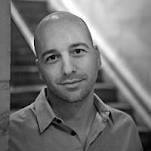
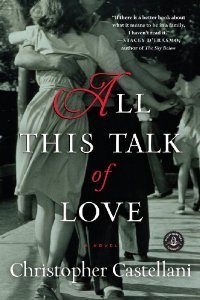
I carried All This Talk of Love by Christopher Castellani around with me everywhere I went. Half the time, while I was reading, I brooded about why I couldn't write something this rich, this moving, this wonderful, but the other half of the time, I was just ridiculously grateful that he had done it. Funny, warm, and infinitely talented, Christopher is the son of Italian immigrants and the artistic director of the very famous Grub Street creative writing center. He's the author of A Kiss From Maddalena, which won the Massachusetts Book Award in 2004, and The Saint of Lost Things, an IndiBound Notable Book that was long-listed for the IMPAC Dublin Literary Award in 2006. He's also on the faculty of the Warren Wilson MFA program and the Bread Loaf Writers Conference. I'm so thrilled to have him here--and my thanks are huge.
Why do you think the past has such a hold on the present--in fact, it's prologue for everything we do. Do you think we can ever escape our pasts? (And would we want to?)
Well, the older we get, the more of our pasts we have to contend with, right? Our futures are continually shrinking, our possibilities dwindling by the minute, and all the while our pasts get weightier and more vast. The cliché metaphor of aging is of going over a hill and falling fast into oblivion, but for me the more accurate image is that giant boulder chasing Indiana Jones in Raiders of the Lost Ark. Seems like the harder we try to escape what we’ve done or chosen and make it out of the cave intact, the more likely we are to stick to the same patterns. In other words, the boulder always runs us down. Believe it or not, I find this strangely comforting.
So much of your novel is also about myth. Can you talk a bit about that?
By myth I think you mean the myths our families create for ourselves. So much of family interaction is like acting in an elaborate play; it’s drama, to be sure. We each fall into our respective roles – the caretaker, the fuck-up, the martyr, the prodigal, etc. – and while these roles certainly shift and evolve, they’re often very different from who we are and how we present in the real world. The script we follow in our families is one we’ve all written together and tacitly approved, even though we know it doesn’t account for half of “what’s really going on” or “what really happened,” all of which is unknowable anyway.
This is certainly true of the Grasso family in All This Talk of Love, especially around the death of the youngest son, Tony. His death gave each member of the family a certain role to play, and because he will never come back to life to alter those roles, they will likely stick to them unless more is learned about how/why he died…
Old age figures prominently in the novel, but in a way that's so nuanced and moving, that the whole subject feels brand new. Please talk a bit about that, too.
Given how much is written about older characters, especially these days, that’s a big compliment. Thank you. Because I wanted this novel to be about the tensions between immigrants and their first-generation children, I needed the parents (Maddalena and Antonio) and their adult children (Prima and Frankie) to be point of view characters. The two “sides” had to carry relatively equal weight so that we could see the issues from multiple angles.
That said, I thought I knew what the older generation’s “issues” would be: they wanted to keep the traditions they came with, they were nostalgic, they were anxious about their children’s futures. But the more I got to know them, the more complex they became. Focusing solely on those standard “immigrant issues” flattened them. Their inner lives were rich in ways I never imagined, which of course made writing them an exciting challenge.
Tell me about your writing life. You're the artistic director of Grub Street, plus you also teach--how do you manage to do it all?
I’ve said this in interviews before, but it bears repeating: my work with Grub Street and the teaching I’ve done at Warren Wilson and Swarthmore and elsewhere have been less of a distraction than an inspiration. No, I can’t go to residencies very often, and I have to fight to protect the little writing time I have each week, BUT being involved with these great organizations has compelled me to hold myself to a higher standard. Also,I’m constantly surrounded by writers who work hard every day on their books; how could I show my face if I were doing any different?
Logistically, it works like this: I protect my mornings and my Saturdays and most Sundays for writing. I find that if I begin my weekdays and weekends having written a minimum number of pages, I’m ready for pretty much anything.
Do you have rituals?
I’m that annoying guy who takes up space in your favorite café for hours at a time drinking the same cup of coffee and mumbling to himself. The noisier the place, the better I can shut out the din and focus on the imaginary world at play on my laptop. The only noises I can’t shut out are crying children and people talking on cell phones. There’s something about both, especially the one-way conversations, that completely disrupts my concentration and fills me with inordinate rage. This is why my favorite cafes are those overpriced hipster joints where they frown upon children and publicly shame you for talking on your Blackberry.
What part of the writing life sometimes makes you think maybe you should have gone to dental school?
Pretty much everything except that incredible high I get when I finish something I think (for the moment, at least) is good. It could be an image, a sentence, a story or an entire novel; whatever it is, that feeling of having come up with it, and sensing its “rightness,” can not be beat. It’s a high like nothing else. As Anne Lamott says, though, you “pay through the nose” for that high. You pay with the endless anxiety about your talent/relative worth as a human being and the favors you have to ask of your friends and the financial hardship and the runaway insecurity that borders on paranoia and the icky self-promotion and the impatience and the messiness and the disappointments. And I’m happy to pay, because that high really is worth it, and because I’d be a TERRIBLE dentist.
What's obsessing you now and why?
To be perfectly candid, right now, the week that All This Talk of Love has come out, I’m pretty self-obsessed. What will I read at the next event? What will I wear? Have any more reviews come out? Am I disappointing people? What will my family/former teachers/fellow writers/students/friends think of the book? It’s embarrassing, and I really hope it passes soon because it’s completely unproductive, and I’m only truly happy when I’m working on something in earnest.
What question didn't I ask that I should have?
You didn’t ask me what my next book is about, and for that (as well as for inviting me on your blog in the first place) I thank you.
Published on February 18, 2013 18:33
Ellen Meister talks about Farewell, Dorothy Parker; channeling the great snark mistress, -Louis C.K., and so much more
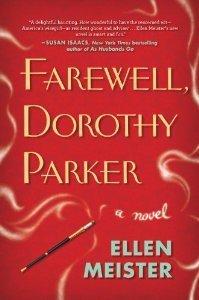
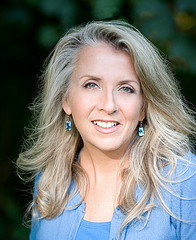
How can anyone not want to read a novel that features Dorothy Parker as a character--especially if the book is written by Ellen Meister? Ellen's the author of THE OTHER LIFE , THE SMART ONE, SECRET CONFESSIONS OF THE APPLEWOOD PTA, as well as numerous short stories. Ellen teaches creative writing at Hofstra University and runs an online mentoring group for women authors. She has served as editor for a literary magazine and currently does public speaking about her books and other writing-related issues. She is working on her fifth novel, tentatively titled INNER CHILD. Thank you, Ellen!
What is it about Dorothy Parker that we love so much? How do you think she's relevant today?I think her audacity has timeless appeal. So yes, we all wish we had her wit, but we also wish we had her courage. And that's especially true in this hyper-PC modern of ours, in which we're all so afraid of saying something that might offend someone. Dorothy Parker didn't give a damn who she offended.Also, we can sense the pain beneath the wit, and there's nothing more human, and thus more relevant, than that.What's the back-story of this book for you? What sparked the idea?I've been a Dorothy Parker fan almost all my life. In fact, in some ways she's the voice I've carried around on my shoulder, making snide comments and biting perceptions about my life and choices.Then, a few years ago, I was marveling at the long list of novels paying homage to Jane Austen. While I think that's incredibly heartening, I couldn't helping wondering why no one did the same for my personal literary hero, Dorothy Parker. In an instant, I realized this was the book I'd been carrying around inside, and the basic premise of bringing her spirit back to life as mentor to a modern woman fell right into place.What's your writing life like? Do you have rituals? Do you follow an outline or just follow your characters and hope for the best?My ritual involves waking up at 5 am and getting a cup of strong coffee into me as quickly as possible.As far as outlining, I've come to the realization that creating a structure is absolutely critical. That doesn't mean I come up with a rigid scene-by-scene outline for the book, but a basic architecture.What's obsessing you now and why?I just watched the first two seasons of Louie C.K. on Netflix, and I'm knocked out. He manages to expose a tender and decent humanity beneath some of the most outrageously vulgar humor I've ever heard. I have no idea how he does this. There's genius here. And it's hilarious.What question didn't I ask that I should have?Your questions are terrific, but I wouldn't mind talking about my Dorothy Parker Facebook page. I managed to find over 72,000 Dorothy Parker fans, and engaging with them is tremendous fun. I think they're the smartest group of followers on Facebook!
Published on February 18, 2013 18:21
Christine Sneed talks about her stupendous new novel, Little Known Facts, celebrity, maintaining a good mood and so much more
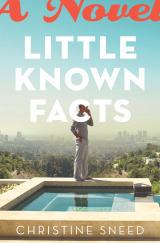
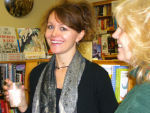
As someone who frankly loves to read about celebrities and ponder their lives (hey, I write about books for People), I was absolutely entranced by Christine Sneed's novel, Little Known Facts. And after reading her responses to this interview, I was absolutely delighted by her, as well. Christine Sneed is a graduate of the MFA creative writing program at Indiana University and has published stories in Best American Short Stories, PEN/O. Henry Prize Stories, New England Review, The Southern Review, Ploughshares, Pleiades, Glimmer Train, Massachusetts Review, Meridian,Other Voices, Greensboro Review, River Styx, Phoebe, South Dakota Review, and many other journals.
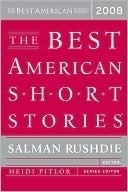 She has been awarded an Illinois Arts Council Fellowship in poetry and has been nominated for several Pushcart Prizes and received special mentions in the Pushcart anthology for stories "Quality fo Life" and "Beach Vacation." Along with a 2010 Los Angeles Times book prize, first-fiction category, for her story collection, Portraits of a Few of the People I've Made Cry, Portraits was awarded Ploughshares prize for a first book, the John C. Zacharis Prize, and was chosen as the Book of the Year by the Chicago Writers Association for traditionally published fiction. It was also longlisted for the Frank O'Connor International Short Story prize. Thank you, Christine!
She has been awarded an Illinois Arts Council Fellowship in poetry and has been nominated for several Pushcart Prizes and received special mentions in the Pushcart anthology for stories "Quality fo Life" and "Beach Vacation." Along with a 2010 Los Angeles Times book prize, first-fiction category, for her story collection, Portraits of a Few of the People I've Made Cry, Portraits was awarded Ploughshares prize for a first book, the John C. Zacharis Prize, and was chosen as the Book of the Year by the Chicago Writers Association for traditionally published fiction. It was also longlisted for the Frank O'Connor International Short Story prize. Thank you, Christine!So much about this wonderful book is about our obsession with celeb culture. Why do you think we are and why do you think the cost or our obsession is so high?
Celebrities generally embody the sexual, economic, and social ideals that most of us learn from early childhood to aspire to. They seem to live charmed lives: gorgeous, wealthy, talented people who can fly off to Nice or Tokyo or Paris at a moment's notice, first class of course, or on their own planes. They don't have to sit in cubicles for any part of the day (unless they're making a film set in office...), they routinely get $300 haircuts, manage to maintain great biceps and sleek legs with the help of their personal trainers...I think it's clear why the mere mortals who populate most of the planet look at them with admiration and envy. One thing I've been thinking about for a while is that everywhere you turn, there's proof that this charmed celebrity lifestyle is a mirage - there are celebrities getting arrested for DUIs, drug-dealing, beating up their family members (or worse). I'm very interested in the dissonance between the fantasy and what seem to me the realities of celebrity, and Little Known Facts is the way I tried to puzzle out these preoccupations and contradictions.
What's your writing life like? How do you write--outline, by the seat of your pen--?
In general, I don't outline short stories, but with novels, I've found that it helps keep me focused if I do sketch out some guidelines for subsequent chapters. I generally don't have a set writing schedule either - I try to write every day or two, maybe four or five days a week, more if I have the time, usually for an hour or two, sometimes more. IT depends in part on how much I'm teaching - the more teaching, the less writing, no surprise.
There's so much in the book about how "we should be happy." Can you talk about that, please?
One thing I'm discovering as I get older is how hard it is to maintain a good mood, to maintain optimism and a sense of joyful (or semi-joyful) discovery. From my experience, from talking to friends and family, I think that as we get older, a lot of us feel that life gets sadder and harder. And that's just the way it is; you realize how complicated relationships are, how much your ego needs to be fed, how easy it is to offend and be offended, how are bodies are slowing down, how disappointing our political situation is, how disappointing people in power are...the ego is really a devastating, unforgiving, ravenous machine. It does feel like a machine to me sometimes - no conscience at all. I guess I'm getting Freudian here. I think as I get older I'm also realizing how important it is to be kind and forgiving but finding forgiveness and kindness isn't as easy to do as it might have been when we were younger. My characters in Little Known Facts are feeling guilty and at a loss because despite their enormous privileges, they aren't very happy most of the time. I don't blame them - whatever great things you have, whatever gifts you have, however much money, there's still a fundamental unrest and a desire for something else (often mysterious) at the heart of our lives - this is the human condition, as I see it.
How do you know what you know about celebrity and Hollywood? Did anything surprise you?
I have friends and a couple of family members who work in Hollywood who I pestered for answers to some of my technical questions but most ofwhat's here is fabrication. Being a lifelong movie addict, I think I picked up a lot of things from watching films and documentaries too, as well as having fun imagining some of the irritations and pleasures of being a famous player in Hollywood. I think i was most surprised about the kind of dough some actors are pulling down (even though this probably isn't a surprise to most people) - $12 million or more per picture for the biggest guysout there. Damn, that's crazy, isn't it?
What's obsessing you now and why?
I worry about the next book - I've been writing new work to keep my mind off of how Little Known Facts will be received. I can't seem to relax and let myself enjoy its release the way I'd like to. I'm thinking that other writers have had similar reactions to their own new books' releases - you worry about continuing to make ends meet. I want to keep buying the coffees and chocolate croissants I've become addicted to lately.
What question didn't I ask that I should have?
Is this book about anyone in Hollywood specifically? Harrison Ford was mentioned in some of the ad copy. Is it about him?
It's not about Mr. Ford and his family at all, but it is about the kind of fame he has achieved and how it might affect those he's closest to - I was thinking of several actors when I was writing this book - Paul Newman, George Clooney, Robert Redford, Brad Pitt.
Published on February 18, 2013 18:12



